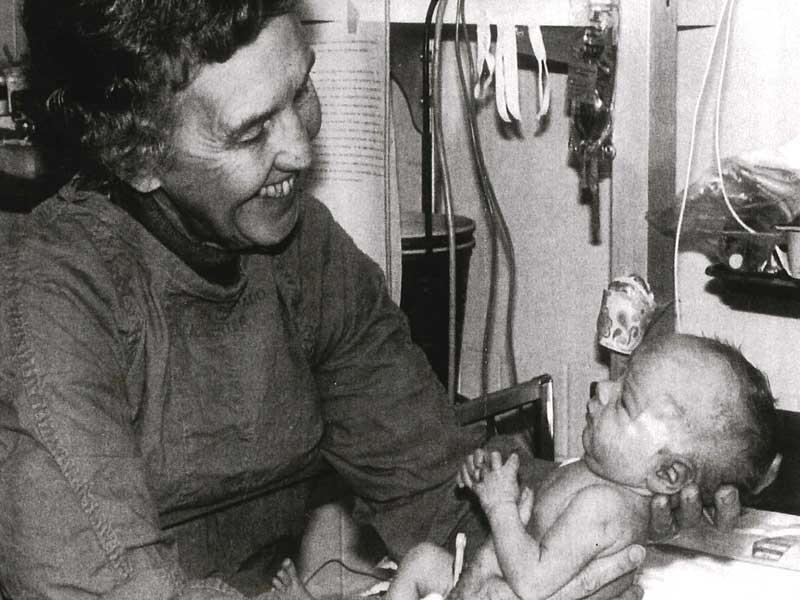Dr. Lula Lubchenco Josephson
Inductee Name
Dr. Lula Lubchenco Josephson
Year Inducted
2024
Category
Medicine/Healthcare
Impact
Colorado
Dr. Lula Lubchenco was a pioneering Colorado pediatrician who developed protocols and tools used in delivery rooms worldwide to categorize newborns and assess their risk of health complications. Her research insights, and the use of her “Lulagram” chart, helped shape the field of neonatology. Dr. Lula Lubchenco was born in Turkestan, Russia, in 1915. Her mother was an American physician and the first female graduate of North Carolina Medical College. Her father was a Russian agronomist. They moved to Russia where she practiced medicine. The family fled Russia during the Bolshevik revolution and settled in northeast Colorado when Lula was 15.
Lula attended the University of Denver, graduating in 1936 and earned her medical degree from the University of Colorado School of Medicine in 1939, one of only eight women in her class. After completing her pediatric residency and a brief time in private practice, she joined the faculty of the University of Colorado School of Medicine. In 1947 she was appointed the first Medical Director of the Premature Infant Center, a position she held for 30 years until her retirement as a full professor in 1977.
Dr. Lubchenco, affectionately known as Dr. Lu, collaborated with Obstetrics Chair E. Stewart Taylor to train pediatric and obstetric residents in neonatal medicine. She advocated for expanded maternal care, emphasizing the need for social workers, nutritionists, and visiting nurses. When the University of Colorado opened a state-of-the-art nursery in 1949, she was alarmed to find that eight of the first twelve babies were blind from retrolental fibroplasia (RLF), now known as retinopathy of prematurity. Through rigorous scientific study, she determined high oxygen levels were the cause, spending six years convincing colleagues of the danger to newborns.
In the early 1960s, Dr. Lu researched the relationship between birth weight and gestational age in newborns. Her research led to the development of a chart which became known as the “Lulagram” which allowed clinicians to plot a newborn’s weight against its gestational age and assess their risk of health complications. Another of her significant research studies involved infants born prematurely due to Rh incompatibility with their mothers. Her findings contributed to the development of obstetric protocols which led to the prevention of Rh sensitization in mothers.
Dr. Lu’s work demonstrated the link between low birth weight and delays in physical and mental development, leading to the creation of the Early Childhood Intervention (ECI) program which provides therapy and support for infants and their families during their first 3 years of life.
Beyond medicine, Dr. Lu was a wife and mother to four daughters. One daughter born with Down Syndrome, inspired her lifelong advocacy for individuals with Down Syndrome. She advanced educational opportunities, mainstreaming efforts, and helped establish Colorado’s first adult Down Syndrome clinic.
Dr. Lu also led a large Mariner Girl Scout troop in Colorado. She trained herself and young women in canoeing, rowing, and sailing. She also organized trips to the west coast and boundary waters for them to utilize their expertise and develop leadership qualities.
As a female pediatrician in a male-dominated profession her persistence and commitment affected the health and welfare of the lives of millions of babies across the world. She inspired countless young women and doctors with her persistence, patience, and soft-spoken guidance.


